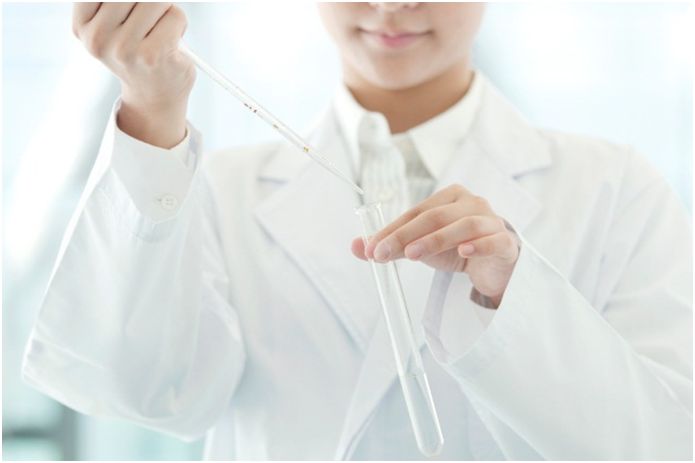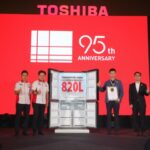- One factor that contributes to Japanese health and longevity is regular health screenings
- Ajinomoto Co., Inc. (“Ajinomoto Co.”) has developed AminoIndexTM Risk Screening (AIRSTM) technology to screen for cancer and lifestyle diseases
- Ajinomoto Co. hopes to expand this valuable tool to other countries based on their specific needs in the future
Table of Contents
Why Do Japanese People Live So Long?
The fact that Japanese people have the longest lifespan in the world—and that they live healthier well into old age—is well documented. In fact, it was one of the focuses of the Newsletter vols. 5 and 8, “Can Ajinomoto Co. Export Japan’s Healthy Lifespan?”.
Many theories seek to explain why. Is it the Japanese diet? Is it genetic? Is it because Japanese society tends to be close-knit, with plenty of social and family support for the infirm? Or perhaps it’s exercise1? This is a particularly compelling question, because after all, Japan is also famous for high stress, long work hours, and high rates of smoking and alcohol consumption.
One factor that surely contributes to Japanese healthy aging is the healthcare system—and specifically, regular health check-ups. Of course, health check-ups are available all over the world, but in Japan, mass screening is provided for every student in school, at work, and in the community universal healthcare system and local governments. While in other countries, health check-ups are often only requested by the particularly health-conscious, in Japan it’s the norm. Surely, the resulting early detection of diseases and other health problems must contribute to a healthier society.
- Kenkoshindan: regular health screening in Japan
Statistics seem to support this idea. For example, Japan spends only 10% of its GDP on providing healthcare, versus 17% in the United States. And despite this smaller investment, health and longevity rates are among the highest in the world1.
- Healthcare Investment: Japan vs US
*1:Including public expenditure and private expenditure
But There’s Still Room for Improvement
However, despite the success of mass health screening, the system isn’t perfect. One area that could be improved is cancer screening. In 2016, only around 40% to 50% of men and around 30% to 40% of women underwent a test to detect common cancers2, and these rates are actually lower than in other countries3.
Why? The reasons are unclear, but factors such as time, additional expense, lack of a feeling of urgency, and simple fear of learning the result probably contribute4.
Detecting cancer at an early stage dramatically increases survival over five years. This is not just important for the individual—it’s important for all of society. The National Cancer Center Japan estimates that 300,000 lives are lost to cancer each year in Japan—that’s 300,000 families affected by the death of a loved one5. And in terms of productivity, it is estimated that 9.5 trillion yen (almost 8.5 billion US dollars) is lost to medical leave related to cancer6.
AminoIndex TM Cancer Screening: Filling an Unmet Need
This is the precise reason why Ajinomoto Co., Inc. (“Ajinomoto Co.”) developed the AminoIndexTM Cancer Screening (AICSTM). Due to our long history of researching amino acids, we understood that the balance of amino acid concentrations in blood changes to reflect a person’s health. And this led to the development of a simple cancer screening technology, which can increase the possibility of detection together in combination with other screening tests.
AICSTM is easy on the doctor and the patient, requiring only 5ml of blood during a routine doctor visit. In men, it screens for stomach, lung, colorectal, pancreatic, and prostate cancer, while in women, it screens for stomach, lung, colorectal, pancreatic, breast, and uterine/ovarian cancer.
The concentrations of 19 different amino acids are analyzed. Based on a historical database, the normal concentration profile for a healthy individual is known, as is the profile for each type of cancer that is tested. By comparing the patient’s profile to the database, cancers can be detected effectively.
-
-
- Amino Acid Concentration Profile Changes with Health Condition
-
Beyond Cancer
The body’s amino acid concentration profile changes in response to a wide variety of illnesses, not just cancer. As a result, Ajinomoto Co. has also developed the AminoIndexTM Lifestyle disease Screening (AILSTM), which uses the same underlying technology to screen for common “lifestyle diseases” such as diabetes. We are currently investigating additional therapeutic areas in which the AILSTM can be helpful.
A Good Start
Needless to say, every country’s health system is different. In some countries like Peru, there is a noticeable gap between the cancer screening facilities in urban versus rural areas, and in private versus public hospitals. Other countries including Singapore are rapidly building additional medical facilities to keep up with rising rates of cancer. And it seems that countries the world over, including the US, UK, and France, are turning their attention to prevention in order to avoid the physical, psychological, and financial devastation that cancer can bring to families.
Compared to other cancer screening methods, the AICSTM is relatively new, and currently it has only been studied in Japanese subjects. However, more than 150,000 Japanese people have taken the test, and we expect that hundreds of thousands more will take the test in the coming years.
Furthermore, Ajinomoto Co. hopes to support other countries to adapt and adopt AIRSTM technology to suit their individual needs. We consider this our solemn responsibility as we seek to support people all around the world in their pursuit of long, healthy lives.
References:
-
-
- Jamie Anders “Why do people live longer in Japan?”, AGE WATCH, June 2016. https://www.agewatch.net/secrets-of-longevity/japanese-longevity/
-
- “Rate of taking cancer screening”, The National Cancer Center Japan, July 31 2017. https://ganjoho.jp/reg_stat/statistics/stat/screening.html
-
- OECD, “OECD Health Statistics 2018 Definitions, Sources and Methods”, Organisation for Economic Co-operation and Development, June 2018. https://www.oecd.org/els/health-systems/Table-of-Content-Metadata-OECD-Health-Statistics-2018.pdf
-
- Cabinet Office, Government of Japan, “Opinion survey on cancer prevention,” “2. Prediction of cancer and early detection”, January 30, 2017. https://survey.gov-online.go.jp/h28/h28-gantaisaku/2-2.html
-
- The National Cancer Center Japan “Latest statistics on cancer”, September 15, 2018. https://ganjoho.jp/reg_stat/statistics/stat/summary.html
-
- Takashi Fukuda, “The cost of cancer treatment and the future of medical cost of Japan”, Nikkei Medical, October 15, 2012. https://medical.nikkeibp.co.jp/leaf/all/search/cancer/cr/201210/526734.html
-
About Ajinomoto Co.
Ajinomoto Co. is a global manufacturer of high-quality seasonings, processed foods, beverages, amino acids, pharmaceuticals and specialty chemicals. For many decades Ajinomoto Co. has contributed to food culture and human health through wide-ranging application of amino acid technologies. Today, the company is becoming increasingly involved with solutions for improved food resources, human health and global sustainability. Founded in 1909 and now operating in 35 countries and regions, Ajinomoto Co. had net sales of JPY 1,150.2 billion (USD 10.36 billion) in fiscal 2017. For more about Ajinomoto Co. (TYO: 2802), visit www.ajinomoto.com.
















